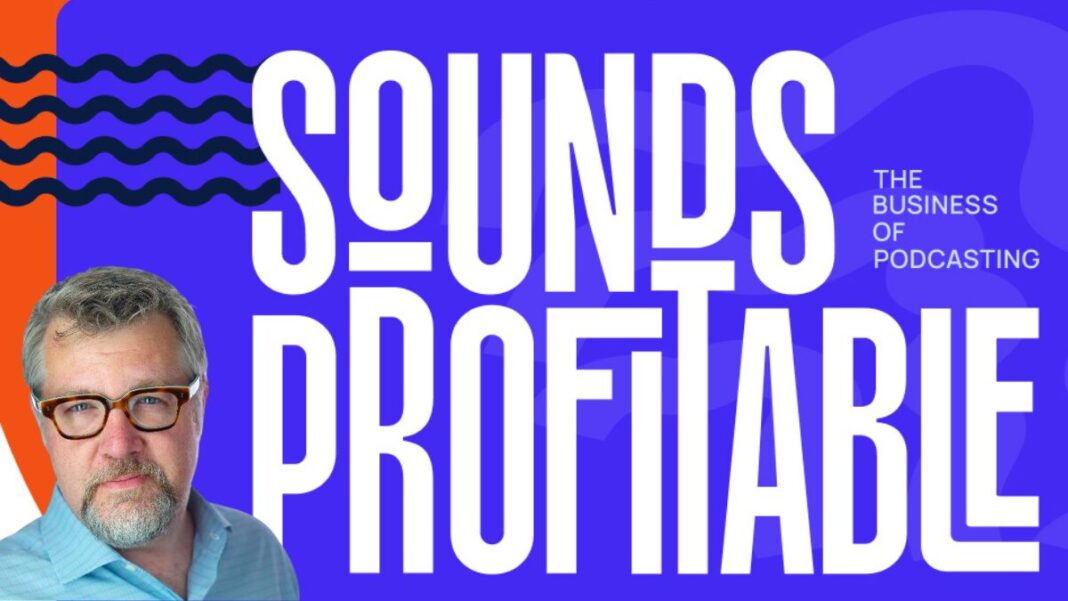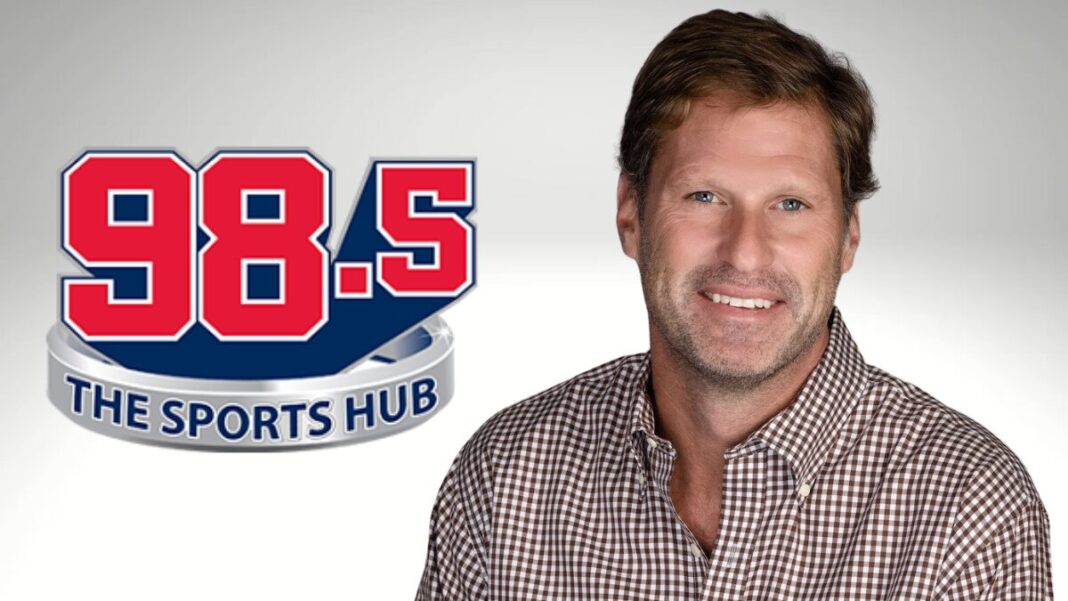Despite being more than 20 years old, the podcasting industry is still in its infancy in many ways. Despite not being as polished to advertisers as many of its media brethren, revenue continues to grow, as does listenership. And Sounds Profitable partner Tom Webster believes the future is a bright one for the industry.
As you might deduce, podcast listening has grown as the industry has evolved and become more widely available and accepted. And while the growth on that front has been encouraging, what’s been more surprising is the revenue associated with on-demand audio.
“The revenues and the sort of commercial interest in it has grown considerably over the last five to seven years. The actual audience growth has always been slow, and steady, and linear, right? It’s never been sort of rocket ship growth on the audience side, but it goes up every year,” said Webster. “And to me, it’s less about this kind of special snowflake that I think podcasting might be to some people and more about a really core behavior. That is the desire on behalf of a listener to listen to whatever content that they want, wherever, and whenever. They want the right to have that kind of control and convenience over it.
“There have been some high-profile podcasts that have attracted more advertising attention to it, but the audience is already here. I think one of our biggest goals at Sounds Profitable really is just to get podcasting to punch its weight with advertising dollars with the audience that it already has.”
While podcasts like The Joe Rogan Experience and The Daily feature humongous audiences and robust revenues, advertisers haven’t fully embraced the middle-tier programs. That’s where Webster believes the growth potential lies for the industry.
“People tend to want to buy the biggest shows. Those shows don’t necessarily have a lot of inventory. And I think one of the things that we have to unlock in this business is continuing to make it easier, and frictionless, and risk-free to buy the smaller shows at scale, with the kind of targeting that podcasting enables,” Webster said.
“I think the great blue ocean for podcasting is to unlock the monetization of the millions of smaller shows out there because they convert really well. The data that we do have on those smaller shows is that when they talk about products and services to their audiences, people are super loyal to those hosts. So we need to continue to unlock that space for monetization.”
Revenues continue to grow in the space. In June alone, the top 15 advertisers in podcasting grew their spending by 7%, with those accounting for more than $42 million of commercials in that month alone.
And yet, there are still some podcast formats that lag behind other less established genres. Tom Webster believes it’s the industry’s job to educate those potential advertisers.
“People talk a lot about things like brand suitability … brand suitability is sort of a big buzzword with buyers and agencies and not wanting their content next to things that they might find objectionable, right? But podcasting actually has a lot of ability in that space,” he shared. “There’s a lot of tech available to be able to target things very precisely. And I think when you use keyword kinds of brand suitability tools to screen things out, you run the risk of doing things like defunding the news.
“Or because, ‘I don’t want my ad to run next to something that mentions a gun.’ Well, the news talks about guns and things like that. So I do think that news can continue to be monetized. I think things like true crime — true crime is absolutely the biggest genre with women. In the top 15 advertisers in podcasting, true crime was the top category I think for only two of them. So people are still sort of like ‘I don’t know if I want my brand to be associated with murder.’ And yet, people run ads on that kind of content on TV all the time. So I think there’s more education that needs to be done.”
The Daily Wire is one of the conservative news organizations leading a similar fight. That organization — which was co-founded by podcast titan Ben Shapiro — believes recent standards put in place by the Global Alliance for Responsible Media (GARM) specifically hurt conservative organizations.
Tom Webster — who recently published a book “The Audience is Listening”, which details his insights into the industry — believes that there’s a misunderstanding from potential marketers about the “objectionable” content.
“People come up with edge cases when they think about these things. ‘Oh, my ad’s gonna run next to the Nazi podcast’ or whatever, but that’s not going to happen,” he shared. “Those are real edge cases. The truth is, and we actually put out a study on this called ‘Safe and Sound’ a couple of years ago, that people who are fans of true crime podcasts and potentially controversial comedy podcasts, they love the brands that support them. They self-select into liking those shows. They’re not listening to things that offend them. So the fact that a brand supports that content that they love, that they have self-selected to listen to, they’re much more likely to recall that brand and think favorably about that brand. And we have data that supports that.”

Garrett Searight is Barrett Media’s News Editor, which includes writing bi-weekly industry features and a weekly column. He has previously served as Program Director and Afternoon Co-Host on 93.1 The Fan in Lima, OH, and is the radio play-by-play voice of Northern Michigan University hockey. Reach out to him at Garrett@BarrettMedia.com.









